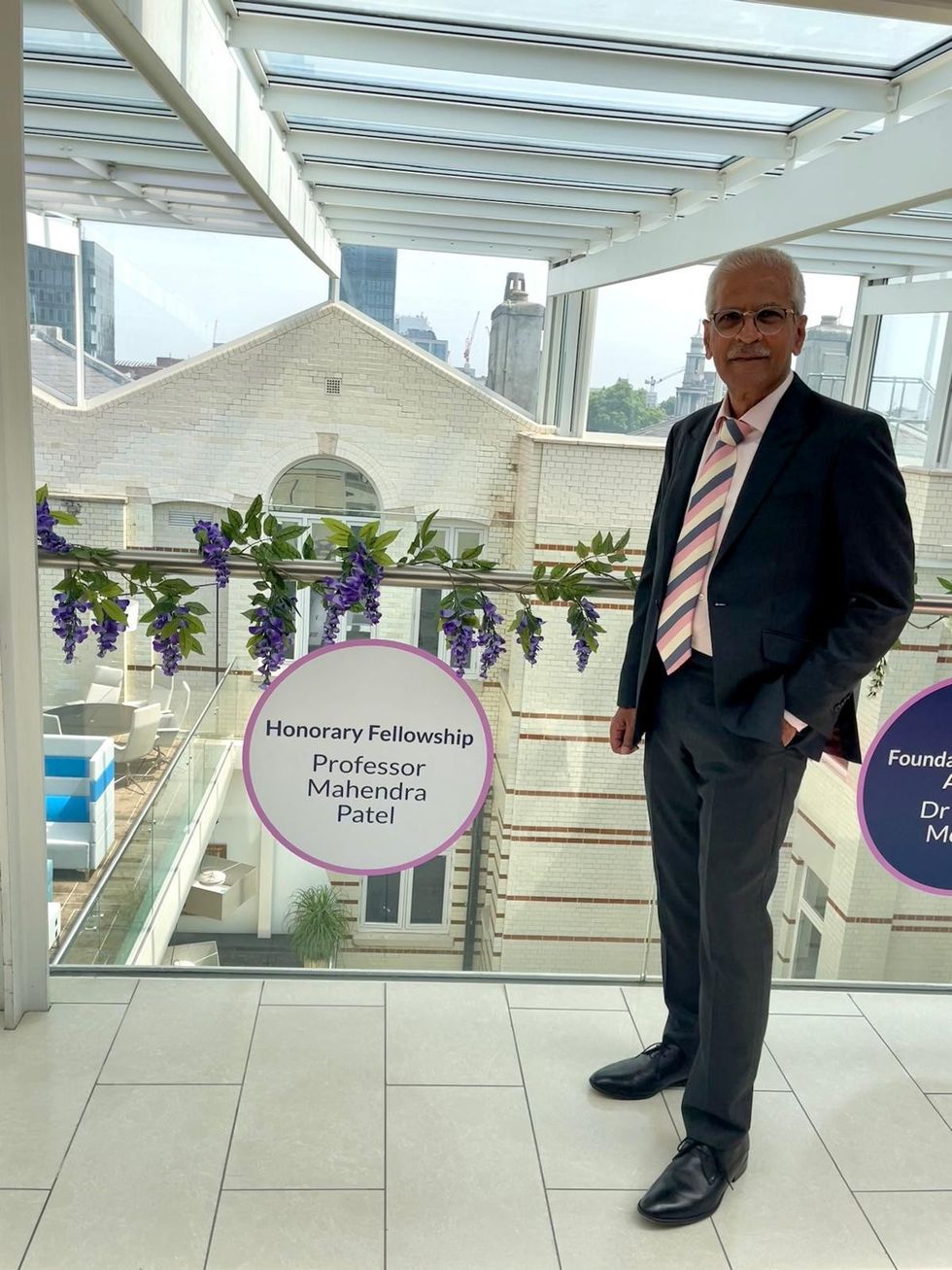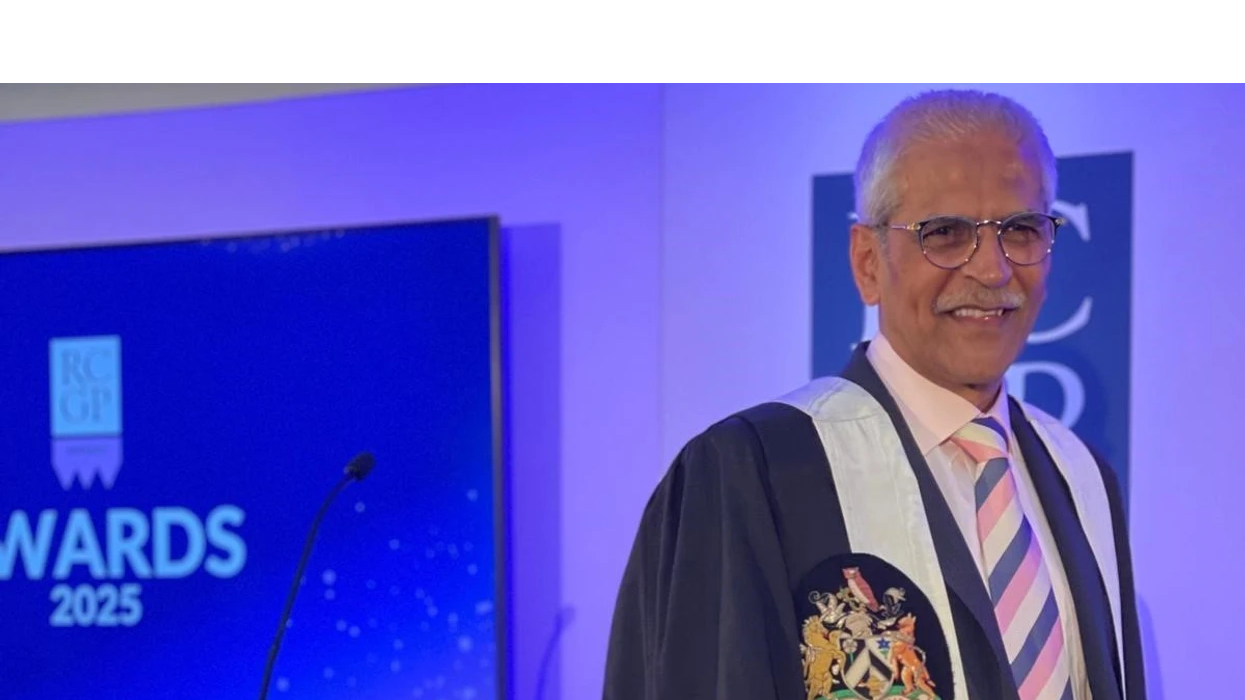Professor Mahendra Patel hopes community pharmacies and GPs can “join hands to improve health outcomes” after he became the first pharmacist in England to be awarded an Honorary Fellowship by the Royal College of General Practitioners (RCGP).
Patel’s distinguished career in pharmacy has seen him make an incredible contribution to the sector in his roles in community pharmacy, health policy, professional leadership, and inclusive research nationally and internationally.
“It’s something I’ve really worked hard on, bringing the profession of general practitioners to work with community pharmacy,” Patel told Pharmacy Business.
“For both professions to see each other in sharing a common agenda of improving health outcomes within the population that we serve. For both sectors to combine and work together in something that will become even more stronger and more meaningful and impactful in its trajectory.”
Starting in community pharmacy, Patel transitioned to academia, where he pioneered the NICE Student Champions Programme, embedding evidence-based practice and tackling health inequalities across the curricula of 40 medical, pharmacy, nursing, and dental schools.
He earned one of the first NICE Fellowships for his early leadership. As a Board member for Royal Pharmaceutical Society (RPS) England, he led the development of national diabetes initiatives and a diabetes toolkit, while forging partnerships across professional boundaries and internationally.
Patel hopes his recognition from the RCGP will lead to greater collaboration between the two professions.
“This is an opportunity for community pharmacy to become further recognised in the space of primary care by holding hands with general practitioners in a more visible and meaningful manner,” he said.
Patel is the founding director of the Centre for Research Equity, Nuffield Department of Primary Care Health Sciences at the University of Oxford.
With his work, he is shaping national research policy, collaborating with the RCGP and forming strategic partnerships across the UK. As co-lead of the NIHR-supported Race Equity Incubator, he is driving efforts to strengthen research capacity and capability while fostering equitable career progression for Black and minority ethnic healthcare professionals.
“A big part of my work is ensuring that we have inclusive research that is bringing the evidence that's reflective of all the diversity that we have within our population, so that the evidence is more generalisable to all, and not just a select few,” he said.
An example of the importance of inclusive research Patel gave is that of clopidogrel, which is used in the prevention of heart attacks. It has now been reported that people of Pakistani and Bangladeshi origin are 30 per cent less likely to have benefit from clopidogrel compared to the white population.
“There is a higher prevalence of heart disease in the south Asian community, and yet when you look at this medication, it's 30 per cent less likely to be effective. It's because the research that's been carried out in the first place didn’t have the representation of the diversity of the populations that we serve,” said Patel.
“One of my aims and objectives through the Centre for Research equity at the Nuffield Department of Primary Care Health Sciences at Oxford, is really making sure that we have research that is inclusive, that the evidence is applicable to all and not just the majority population.”

A member of the UK Pharmacy Professional Leadership Advisory Board, Professor Mahendra Patel is a strong supporter of RPS becoming the Royal College of Pharmacy. He is also a BMJ NHS Commissioner and Professional Advisor to England’s Chief Pharmaceutical Officer.
Patel said he will use the recognition from the RCGP in his work to support the RPS becoming the Royal College of Pharmacy.
“This stands as one of the proudest moments of my career, and for the pharmacy profession I represent, as RPS progresses to become the Royal College of Pharmacy. I hope this recognition becomes a catalyst: for closer collaboration, for shared leadership, and for inspiring members of both our professions to think beyond traditional boundaries - at every stage of their careers,” he said.
“At a time of extraordinary pressures on general practice and pharmacy, joined-up thinking and integrated leadership across our professions has never been more urgent. I’ve always sought to break silos, widen access, and drive equity, with a clear focus on improving health outcomes by tackling the deep-rooted inequalities that persist across our communities.
“This Fellowship, for me, is not the culmination of that long journey, but the beginning of a renewed and fresh commitment.”












